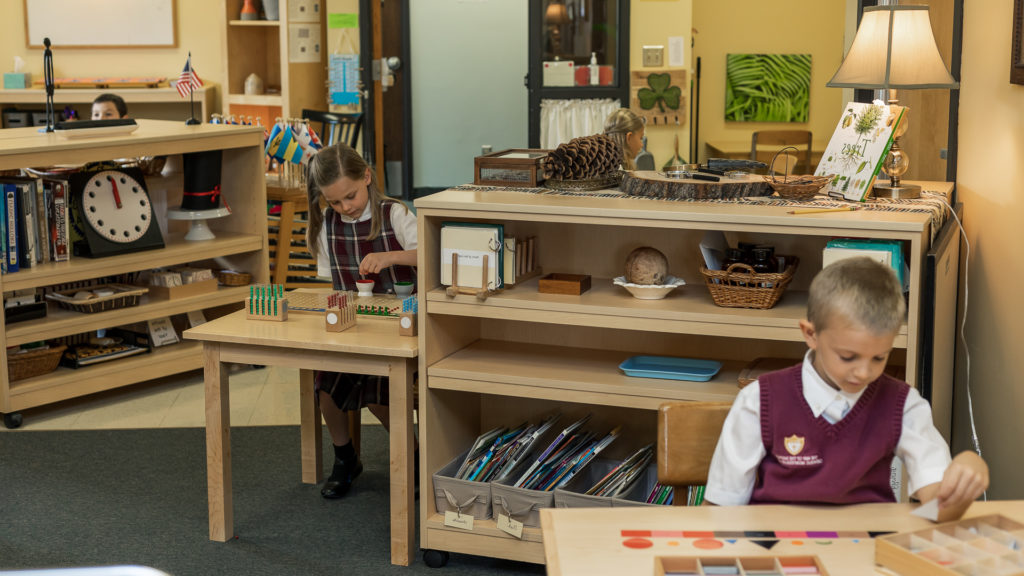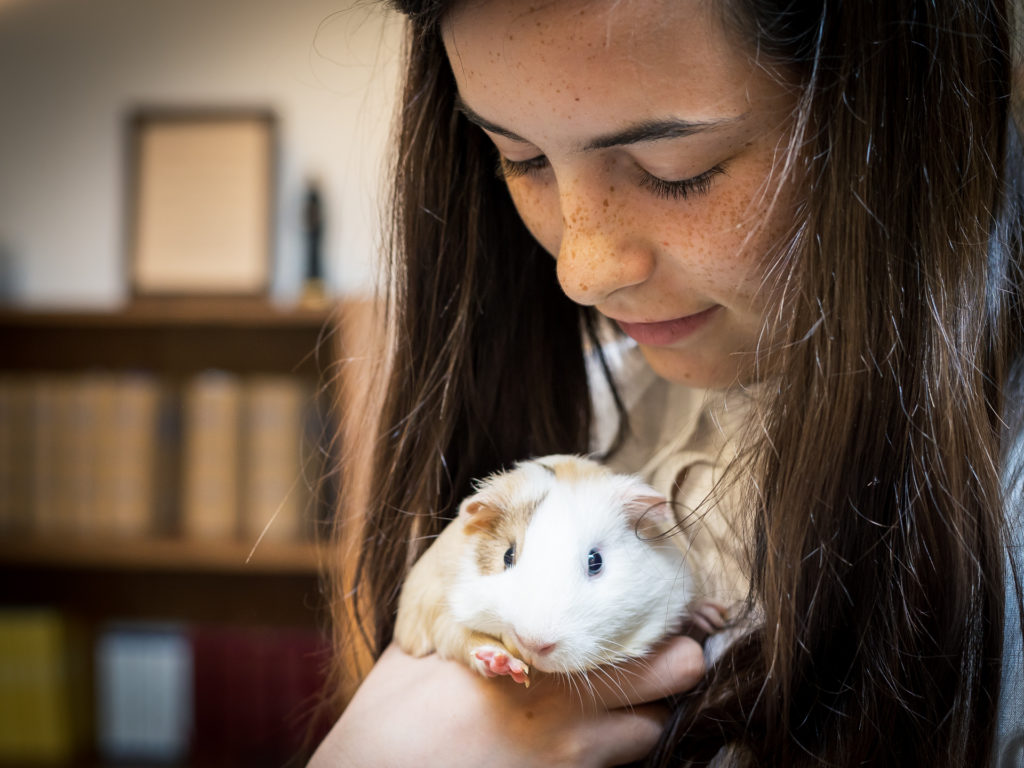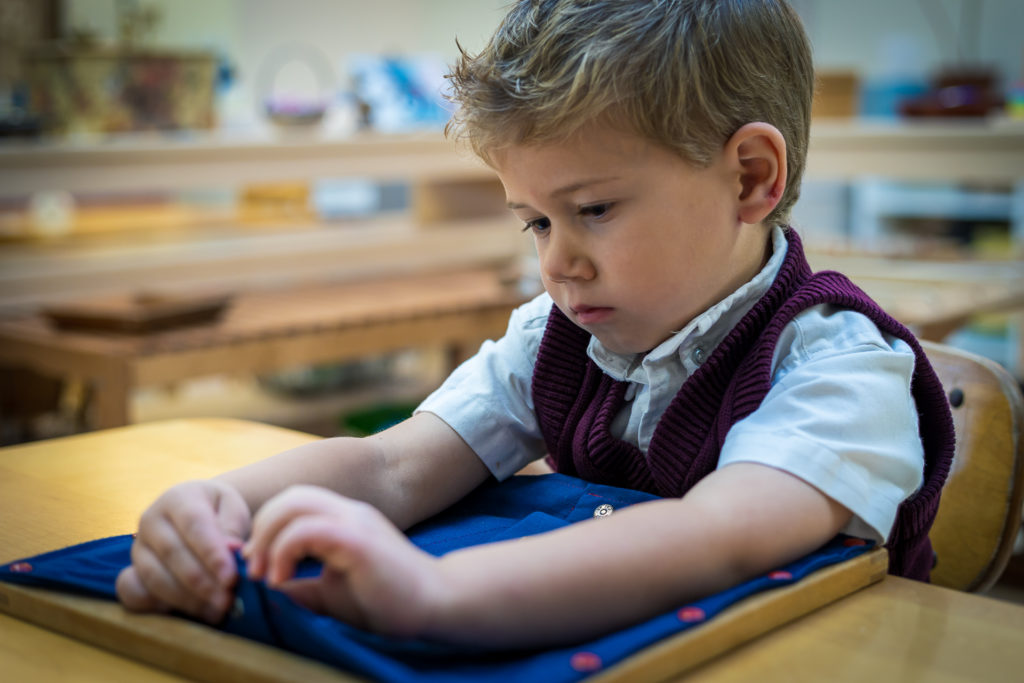Montessori education is a scientific method of education developed by Dr. Maria Montessori. The method is based on the belief that children have a natural love for learning and deserve respect. Through observation, Dr. Montessori identified four stages of childhood development, as well as psychological characteristics unique to each stage. Using this information, she created educational environments that corresponded to the spontaneous process of learning evident at each plane of development.
Montessori environments are based on the following key principles:

A Prepared Environment and a Prepared Adult
Beautiful and orderly, the prepared environment is designed specifically for children to work independently with a range of hands-on, experiential learning materials. A Montessori-trained adult serves as a guide, following and challenging the child in his or her academic development.

Freedom & Responsibility
Children are free to move about the classroom, and free to choose the work they desire, so long as they are respectful to each other and the classroom materials. Children are free to repeat work at any time, creating the opportunity for mastery. The child understands that not working is not an option in a Montessori environment.

Process & Product
Children are naturally driven to discover and learn. Using activities and lessons to stimulate their interest, they learn fundamental concepts through a process of deep work. The children are appropriately challenged, and free to pursue their passions. Uninterrupted work time helps each child build concentration, focus on internal development, and build their own unique personality.

Independence & Interdependence
The task of the educator is to facilitate the child’s job of becoming a full human being, and therefore, to remove any obstacles which hinder that goal. Independent work options and multi-age classrooms help children learn from each other, while providing ample leadership opportunities. Peaceful and respectful interactions amongst the children and adults result in the building of community within the classroom, the school, and the greater society.
“THIS IS EDUCATION, UNDERSTOOD AS A HELP TO LIFE; AN EDUCATION FROM BIRTH, WHICH FEEDS A PEACEFUL REVOLUTION AND UNITES ALL IN A COMMON AIM; ALL MUST COMBINE IN THEIR RESPECT AND HELP FOR THIS DELICATE WORK OF FORMATION, WHICH THE LITTLE CHILD CARRIES ON IN THE DEPTH OF A PROFOUND MYSTERY, UNDER THE TUTELAGE OF AN INNER GUIDE.”
Maria Montessori
